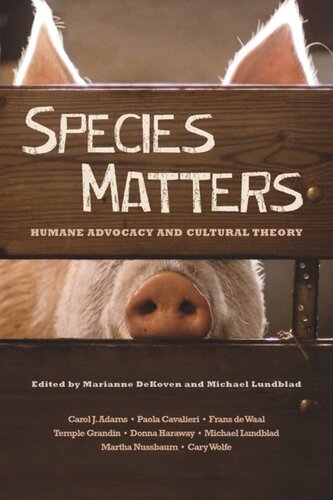

Most ebook files are in PDF format, so you can easily read them using various software such as Foxit Reader or directly on the Google Chrome browser.
Some ebook files are released by publishers in other formats such as .awz, .mobi, .epub, .fb2, etc. You may need to install specific software to read these formats on mobile/PC, such as Calibre.
Please read the tutorial at this link: https://ebookbell.com/faq
We offer FREE conversion to the popular formats you request; however, this may take some time. Therefore, right after payment, please email us, and we will try to provide the service as quickly as possible.
For some exceptional file formats or broken links (if any), please refrain from opening any disputes. Instead, email us first, and we will try to assist within a maximum of 6 hours.
EbookBell Team

0.0
0 reviewsWhy has the academy struggled to link advocacy for animals to advocacy for various human groups? Within cultural studies, in which advocacy can take the form of a theoretical intervention, scholars have resisted arguments that add "species" to race, class, gender, sexuality, disability, and other human-identity categories as a site for critical analysis.
Species Matters considers whether cultural studies should pay more attention to animal advocacy and whether, in turn, animal studies should pay more attention to questions raised by cultural theory. The contributors to this volume explore these issues particularly in relation to the "humane" treatment of animals and various human groups and the implications, both theoretical and practical, of blurring the distinction between "the human" and "the animal." They address important questions raised by the history of representing humans as the only animal capable of acting humanely and provide a framework for reconsidering the nature of humane discourse, whether in theory, literary and cultural texts, or current advocacy movements outside of the academy.